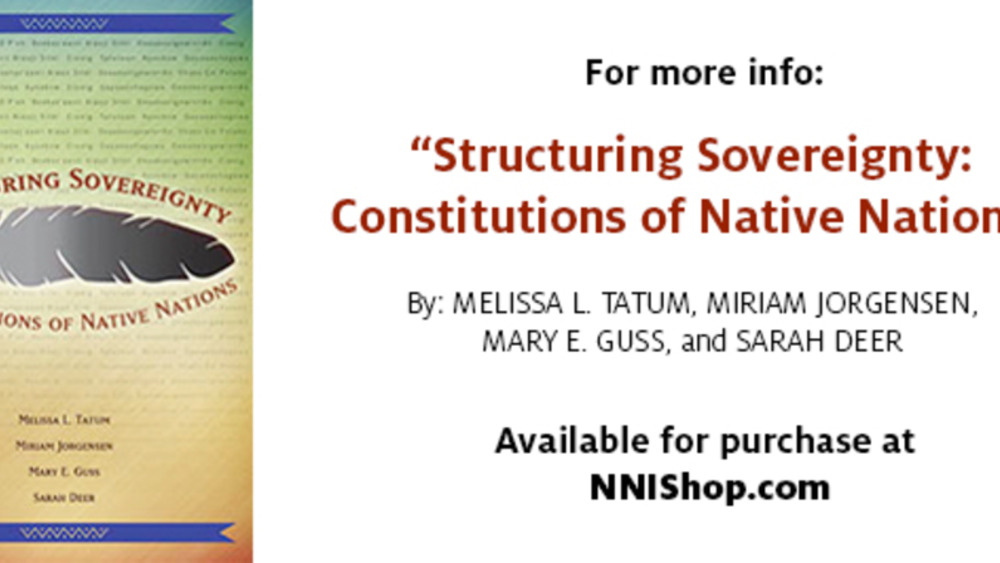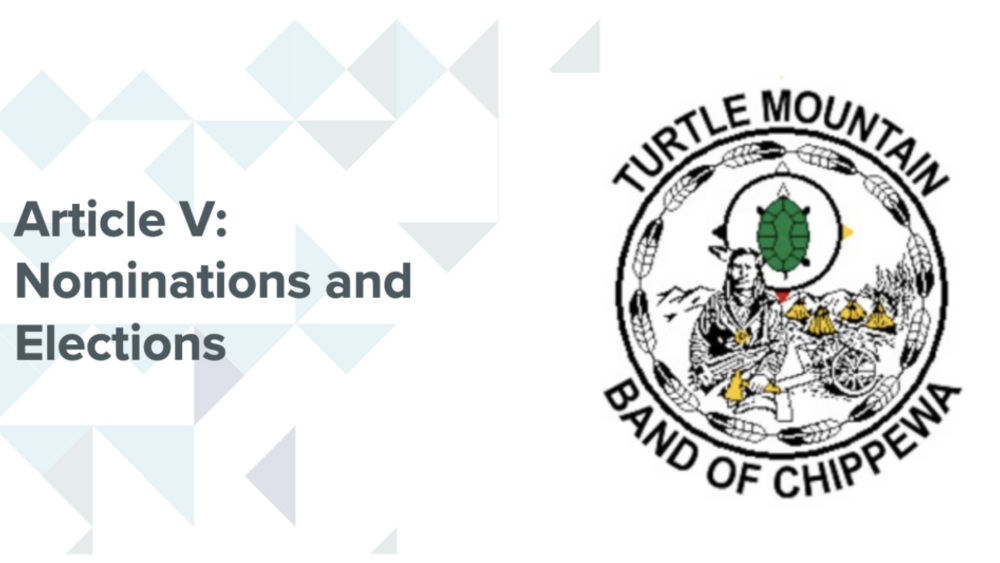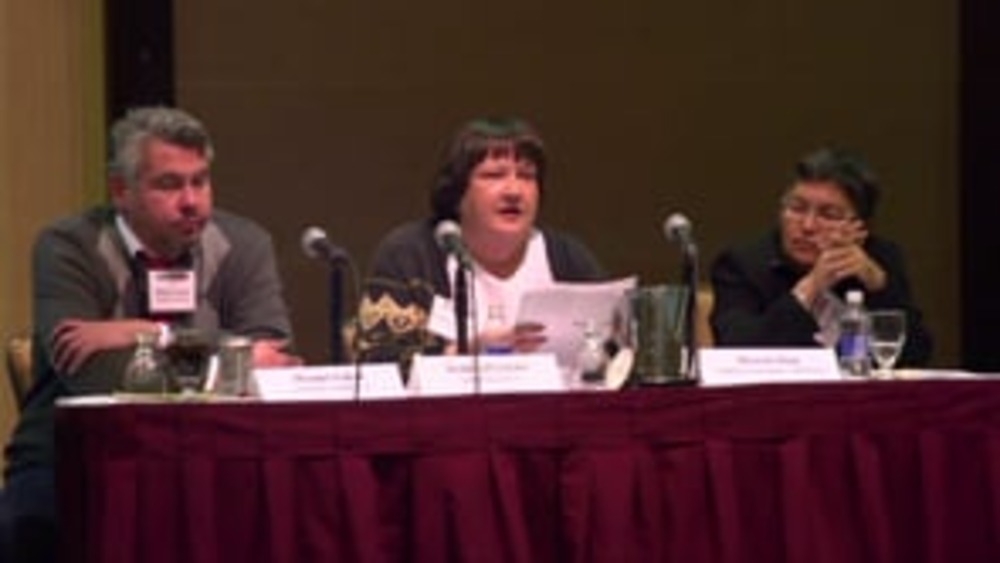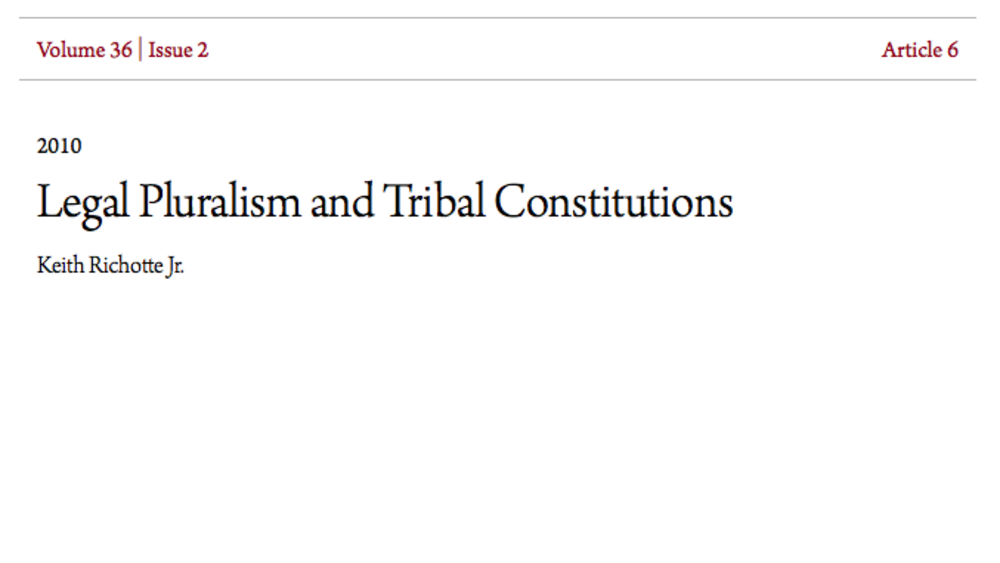Indigenous Governance Database
Turtle Mountain Band of Chippewa Indians

Turtle Mountain Band of Chippewa Constitution
Location: North Dakota Population: 30,000 Date of Constitution: 1943, most recently amended 2006

Turtle Mountain Band of Chippewa Indians: Elections Excerpt
ARTICLE V NOMINATION AND ELECTIONS Section 1. All elections shall be conducted by secret ballot. The candidate or issue receiving the greatest number of votes cast shall prevail. In the event more than one representative is required to be elected for a district, the positions shall be filled…

Deborah Locke: Disenrollment: My Personal Story
Deborah Locke, adopted by a Fond du Lac Band of Lake Superior Chippewa couple when she was a small child, shares her heartbreaking story of how she and her adopted siblings were disenrolled by the Band decades later because they were not the biological descendants of Fond du Lac Band members and…

Legal Pluralism and Tribal Constitutions
What do pigs roaming the streets of New York City during the first half of the nineteenth century and tribal constitutions have in common? The most obvious (and often the most correct) answer is, undoubtedly, “absolutely nothing.” However, tribal advocates, particularly those concerned with the…
